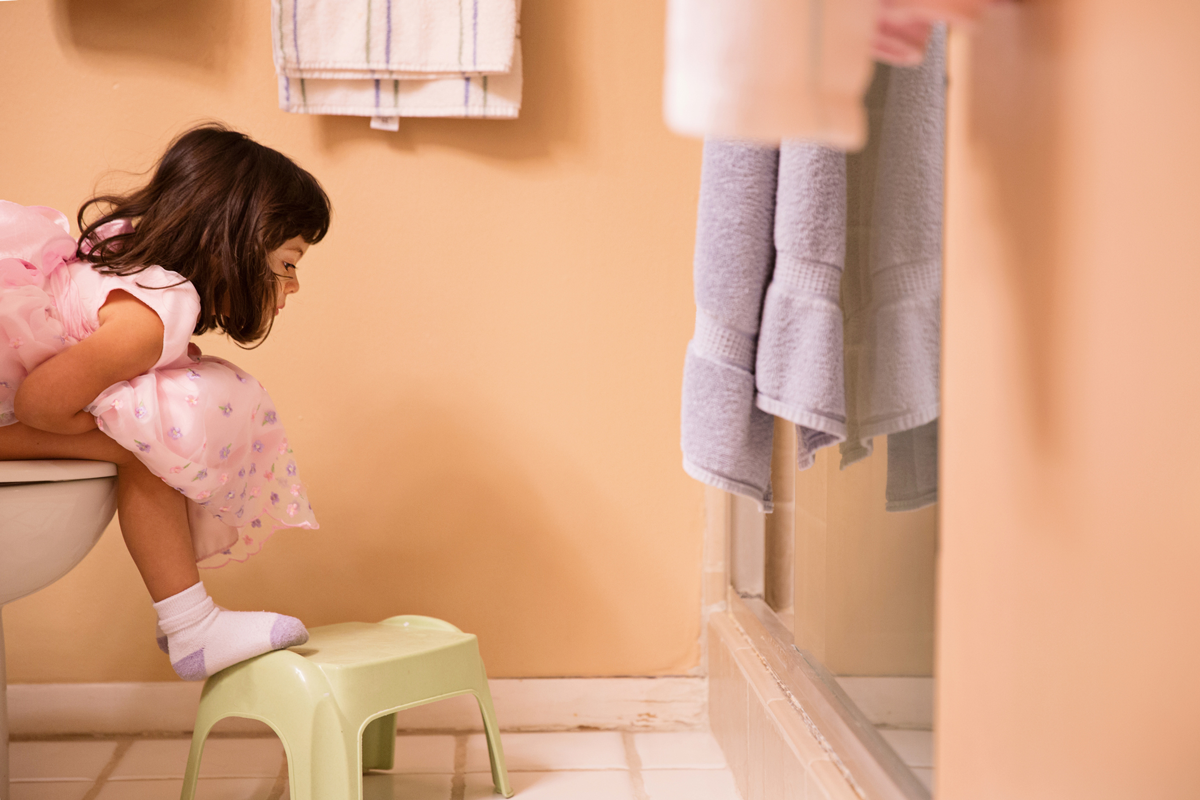In the first years of your child’s life, you spend a lot of time in your pediatrician’s office. Between the frequent well visits and the recurrent illnesses (especially if your child is in day care), it may even feel like you need a frequent-flier card. To add to that, today’s parent is contending with a whole new level of information overload. When it comes to our children, we are all more emotional; when they are sick, or we are worried they are sick, the person we turn to has an especially crucial role.
No wonder it can feel so overwhelming to navigate the parent-pediatrician relationship.
As a pediatrician mom of three kids, I have the unique opportunity to think about this from both sides. And this is my conclusion: Finding Dr. Right is a little like finding a life partner. I don’t mean to add a layer of pressure — it is, of course, much easier to switch pediatricians than get a divorce. But similarities exist.

An ideal life partner is one who shares your goals, is a good listener, and can help you navigate the emotional, challenging moments of life — someone in your corner. Similarly, the ideal pediatrician is invested in helping you and your child thrive. They are compassionate, and have the time and patience to connect with you and reassure you when you’re not at your best … because none of us are at our best when we’re not sleeping.
In some ways, this feels increasingly impossible to find, especially as we face a pediatrician shortage. How do you find Dr. Right at a time when health care feels fragmented and perfunctory, and there are fewer (pediatrician) fish in the sea?
Pick your priorities — and be willing to compromise
Part of choosing a pediatrician is identifying your priorities. Certain priorities are universal. At the most basic level (no matter the relationship!) we all need to feel heard.
The fact is: you are the expert on your child. If you’re noticing something amiss, it is important for your child’s well-being — and yours — that you have the space and comfort to bring it up. Will your concerns always require an intervention? No. But do they at least merit consideration? Absolutely, yes.
Every family needs a pediatrician who will listen to your concerns. But beyond listening, each of our family’s priorities will look different. It is rare for a single pediatric practice to check every box, so make a list of your “must-haves” and your “okay-not-to-haves” when picking the pediatric practice that is right for you. For example:
- Availability: Some families need a practice with extended hours and flexibility. But this model may forgo intimacy and continuity of care, because those practices need to employ more providers.
- Continuity of care: Other families may value the intimacy that comes with seeing the same doctor every time, but this model may have limited hours because it relies on that person’s availability.
- Other services: Some families prefer a one-stop shop that offers an array of services (e.g. lactation, on-site lab services).
Of course, the option to make choices based on these priorities is a privilege. For families who live in more rural areas, for example, you may have to compromise on some of these priorities. Although the truth is that every relationship has elements of compromise.
Knowing the pros and cons of different practice structures and recognizing how those fit in with your family’s needs is an important step in finding Dr. Right.
Other considerations can be divided into three categories:
1. Personality and philosophy
Communication style matters a lot in pediatric care. We do a lot of talking! Knowing the approach that works best for you and your child can go a long way in making sure you have productive conversations. Do you need a straight shooter who does not beat around the bush? Or do you need a more warm-and-fuzzy, gentle approach? There are excellent pediatricians in both categories.
Philosophy matters too. Ideally, you would find some alignment around medical philosophy and approach to topics like vaccines, COVID-19, and antibiotic use. But you do not have to be aligned on everything to have an amazing patient-doctor relationship. Especially when it comes to topics like sleep training and discipline, pediatricians who see patients with a range of different philosophies can often offer more balanced perspectives and advice, because they’ve usually seen success with different approaches. The key here is picking someone who does not make you feel anxious or ashamed about your parenting choices.
2. Credentials and experience
Most people are not aware that board certification is not actually a requirement to provide pediatric care to children. But choosing a board-certified provider ensures that your child’s health care provider’s knowledge base meets an acceptable (and nationwide) standard.
Additionally, many different types of providers can provide pediatric care: family practitioners and pediatricians (MD/DOs) and physician extenders, such as nurse practitioners (NPs) or physician assistants (PAs), can all offer pediatric care, although their relative training and experience will differ. Some may prefer to bring the whole family to a single practice and see a family practitioner, while others may choose to see a provider with training focused on pediatrics exclusively.
Finally, consider not just the credentials of the person you are choosing but also the number of years they have been practicing. Brand-new grads are less experienced but may also know the most up-to-date, evidence-based guidelines. More-experienced doctors have seen a lot more but have not always had the time to keep up with newer ways of doing things.
3. Logistics
Sometimes great pediatricians work in poorly run offices, and difficult logistics can disrupt what would otherwise be an amazing relationship. Consider:
- At the start you will be going to the pediatrician frequently, so choosing an office location that is easy to get to will make your life easier.
- Are they in-network with your insurance? If not, how much do they cost?
- How many providers are in the practice? Will you see the same provider every time?
- What hours are they open? Do they offer same-day or weekend availability?
- How easy is it to communicate with your pediatrician? Is there a web portal?
- What happens if there is an after-hours emergency?
- Are lab tests done in the office?
- What are your interactions in the office like? Office staff who are not warm and welcoming make coming in with a sick child more stressful.
Ideally, by using some of these guidelines, you can pick the pediatrician who is right for your family. But we all know that relationships that are great on paper are not always great in practice. So what happens if things are not perfect?
Navigate conflict and know when to move on
Long-term relationships often have moments of conflict or disappointment. When this happens, the relationship is not necessarily over — but getting through those moments successfully depends on how they are handled on both sides.
If you are not feeling heard or you disagree with your pediatrician, it’s important to speak up. These types of conversations can feel intimidating as a parent, but they don’t have to be. Here are a few tips to make difficult conversations more productive so you can more effectively advocate for your child (which is, after all, the goal):
- Start off with the expectation that you and your pediatrician are playing for the same side. Being combative rarely leads to productive conversation. Remember that ultimately you and your pediatrician have the same goal: a thriving child.
- Schedule an appointment specifically to talk about your concern (rather than trying to squeeze it into a well visit). This ensures that your conversation is thorough and not rushed.
- Write down your talking points ahead of time. In the chaos of the moment, it is easy to forget everything you needed to say, so take the time to write down not just your concerns, but also how long they’ve been going on, what has and has not helped, and how they’re impacting your child.
- Create a path forward together. If your concern does not need intervention right now, then try to ask specifically what to watch for, and how long to wait before reassessing.
Some long-term partnerships are not meant to be. Through your parenting journey, priorities may change and you may find that the pediatric office you chose is no longer a good fit. If you’ve tried to have conversations fruitlessly or you continue to feel dismissed, it is time for a change. You might need a different practice structure or simply a different provider.
Many parents are reluctant to make this type of switch for fear of causing offense. I want to reassure you: the priority here is your child’s well-being, and if you do not feel like your concerns are being acknowledged, the relationship is not working. If you’re searching for a new pediatrician, ask your friends and local community. Parents are usually quite forthcoming about what they love (and don’t love) about their pediatric office.
How do you know you’ve found the one?
For many parents (myself included), the ability to think objectively disappears when it comes to our children. In a world of information, it is easy to spiral. That is why your pediatrician is there: to help prevent the spiral and to separate out the fact from the online misinformation.
For anyone who has felt nervous about asking questions because you don’t want to be labeled “that” parent, let me reassure you. Dr. Right wants you to call and won’t judge you. They would rather you ask the question than stay up all night worrying (or worse, googling).
If you trust your pediatrician’s judgment, feel heard when you bring up concerns, and do not feel shamed for asking questions, you’re on the right track. If the office is easy to work with and your child truly enjoys seeing their doctor? Congratulations. You’ve found Dr. Right!
The bottom line
- The most important thing to consider when selecting a pediatrician is that you feel as though your concerns are being heard.
- Other aspects to consider are the pediatrician’s communication style and medical philosophy, their credentials, and the amount of time they have been practicing medicine. There’s no one right answer — there are great doctors in all different categories — it just depends on your priorities.
- Conflict in a long-term pediatric relationship is normal, but addressing concerns openly, respectfully, and proactively is key — and if repeated efforts don’t lead to feeling heard or supported, it may be time to find a provider better aligned with your child’s needs.




















Log in
Thanks for writing this. It took me a lot of time to realize that my pediatrician’s comments were not okay, to push back on them in my next appointment, and eventually change the pediatrician. An example: I was breastfeeding my kid by choice. At the 1 yo appointment, I was told ‘You don’t have to breastfeed’, in a dismissive manner. It was quite disorienting to be faced with such an attitude, and quite confusing for me. The same week WHO released a guideline about preferred breastfeeding for 2 years if parents were able to. It was reassuring. The next time, I told her, `I don’t have to, but I choose to do it’.
This all makes a lot of sense for what’s ideal in a doctor, but to me the main question is HOW to find out any of it in advance. Or is it just trial and error?